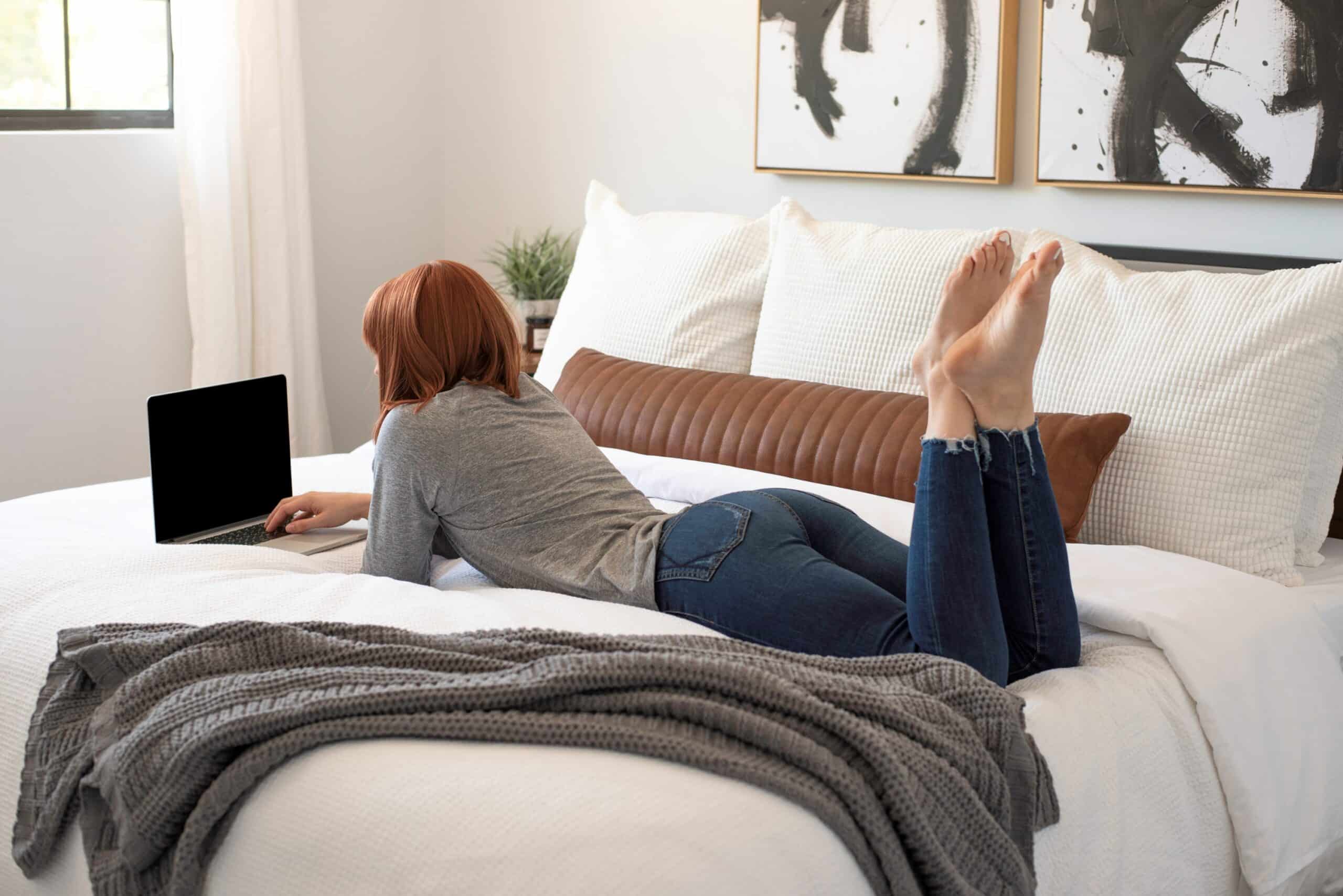Many people seem to do a digital detox nowadays. But how and why exactly should you reduce your social media use?
Read also: Digital Minimalism Book Review | 11 Lessons + Quotes
Few people realize that the founders of Apple, Facebook, Instagram & Co. would never have built such a successful company had they spend as much time on phones and social media as the average users of their products do.
According to some statistics, the average social media user spends almost 2 1/2 hours (145 minutes) every day on social platforms.
Even worse, the average phone user picks up their phone 58 times a day and spends three hours and 15 minutes using the device.
That’s more than 22 hours a week, and more than 49 days a year, we lose to mostly mindless scrolling and tapping on our phone.
By contrast, I have used my phone on average a little over 20 minutes a day for a few years, and I only drop in on social media on odd days when I am curious about one specific account.
Of course, I am no digital saint. I spend a lot of time reading fanfiction on my tablet or laptop, and occasionally I spend too much time watching YouTube videos.
Still, I imagine I have so much more time during the day to spend on pursuits like studying, reading, and building my business than phone addicts have.
Also, since I stopped using Instagram daily, I feel so much less comparisonitis and FOMO; instead, I am more focused on and content with my own life.
As you can see, there are plenty of reasons to reduce your social media use. But, since you’re here, I suppose you already know that.
So let’s get into the tips:
1. Delete the apps on your phone and only access them via browser
This seemingly small rule has immensely powerful effects. After all, the biggest reason we’ve become so attached to social media in the first place is the convenience of its immediate availability.
Just grab for your phone, which always carries around with you, swipe up and tap a few times, and voila, in a matter of seconds, you are staring at your news feed.
Deleting the apps from your phone is not meant to signal you stepping away from social media once and for all. For most people, that measure would be way too harsh to ever try.
Instead, you should delete the app with the promise to yourself to still check your social accounts from your laptop or tablet.
The extra time and effort it takes to enter your accounts will do true wonders to quell your motivation to do so.
In fact, you might soon find yourself losing a big portion of your interest in these apps.
2. Find an alternative activity for bursts of boredom.
In a world of instant and constant entertainment, we suffer from a lack of tolerance for boredom.
The second we feel bored – be it waiting in a line, sitting in a waiting room, or counting the minutes until the end of a lecture – we reach for our phones to fill this entertainment void.
This urge can be difficult to resist at the beginning when you are still very much addicted to the social media rush.
Pure self-discipline can get you there, but there is also a far easier method: Stay busy.
Usually, I’d advise everyone to not be busy but productive because the quality of your work counts and not how many hours a day it fills.
However, in this case, we can benefit from being busy. If you fill your free time with tasks that take up all of your attention, you can’t focus on other things like your phone.
When you’re bored in lecture, grab a pen and continue to fill out the squares of a page in your notebook.
If you are bored in a waiting room, take out a book and work on your goal to read one book a week.
Read also:
And if you are bored at home, take three pairs of socks and work on your goal to learn how to juggle them.
Find goals to pursue during every burst of boredom. Ideally, but not necessarily, those goals should keep you entirely away from your phone.
3. Turn off notifications
Once you have found something to direct your attention away from your phone, it would be counterproductive to have your phone vibrate and ping and destroy all that effort.
I’ve disabled any notification sounds for text messaging or social media straight from the beginning, and later on, I also disabled notification banners on the lock screen.
If I have to use my phone for navigation or look something up on the internet, I don’t want to be immediately bombarded with other people’s messages.
I chose how I spend my time. If I want to look something up online, I do exactly that. And if I want to text with others, I do that on my own time.
I take control of how I spend my day.
4. Be busy!
The easiest way to forget to check your phone and social media is by being too busy to do so.
So before you jump into your digital detox, make sure to find activities or projects to fill your time with.
Naturally, these activities shouldn’t include a phone.
5. Use apps that block your internet or certain websites
I’m sure you’ve heard of the many apps available that can block your access to certain apps or even wifi altogether for predetermined amounts of time.
If you think this is the right fit for you, make use of them.
A word of warning: Don’t be too strict with the limits you set yourself. Keep it to the very essential.
The more you restrict yourself, the more resentment will build and the more you’re likely to ditch these apps altogether.
6. Carefully curate a handful of high-quality sides you follow for a certain topic
Are you interested in the news? Don’t just browse through random news sites and read all the breaking news in hopes of getting a tiny bit of different information from each side.
Instead, curate a shortlist of high-quality and trustworthy sources that will present you with the most complete version of the story.
The same goes for celebrity gossip. Ditch the dozens of gossip accounts you follow on Instagram. Instead select maybe three sources that have proven the most valuable for you so far.
If you carefully curate the list of your sources of information, you will spend a fracture of the time gathering the most important information.
7. Always ask yourself: Why do you want to use this tool? Do its benefits outweigh the time it will steal? And how do you plan on using it?
Most don’t spend much thought on why we use social media. It’s mostly a kind of herd pressure we mindlessly follow: ‘All my friends are on Instagram, so I should be on Instagram as well.’
Once you actually take the time to analyze your relationship with Instagram, Facebook & Co., it might be surprised how you could spend so much time on an app with so little value to you.
Why are you using Instagram? What benefits do you want to gain from it? If you strip it down to just these few benefits, how would you need to use the app to attain them? In how little a time a day or a week could you achieve these benefits?
Chances are, you would only need to check Instagram or Facebook once a day for maybe 30 minutes to an hour to connect with others.
8. Leave your phone behind when possible or put it out of reach
Out of sight, out of mind.
If you put your phone into a drawer at home or into your back instead of your pants pocket, it will be much easier to avoid the urge to look at it.
11. Power through one week of discomfort
The beginning of a digital detox is always uncomfortable. You’ll find your hand twitching to your phone more times than you’d expect.
The good news is, getting over your digital addiction is much easier than getting over a substance addiction.
After a week, many notice themselves forgetting about their phone and social media more and more.
So, brave that discomfort for a few days and don’t give up straight away. It will be worth it in the long run!
Do you think these tips can help you to reduce your social media use? Do you have any additional tips?
Let us hear from you in the comments down below!
Until next time, Felicity Seeker!












